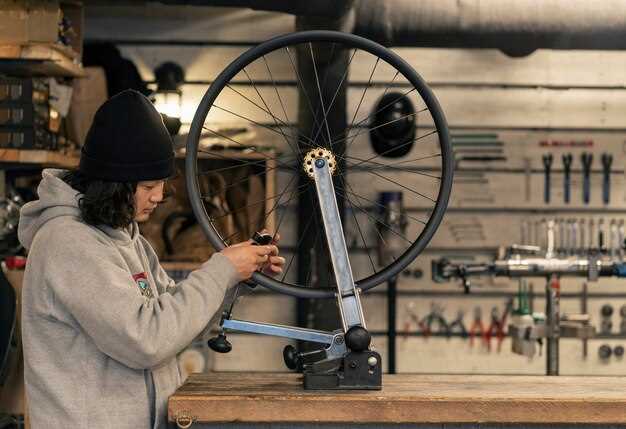

When it comes to enhancing vehicle performance, one of the most impactful upgrades you can make is the choice of wheels. Lightweight wheels are increasingly popular among automotive enthusiasts due to their potential to improve handling, acceleration, and overall driving experience. However, determining whether they are suitable for your specific vehicle build requires a careful examination of several factors.
Weight Reduction is a primary benefit of lightweight wheels. By reducing the unsprung weight, these wheels allow for better suspension response and improved grip on the road. For vehicles built for racing or spirited driving, this can translate to faster lap times and more responsive handling. However, it’s essential to consider the specific requirements of your vehicle’s build and intended use before opting for this upgrade.
Moreover, not all lightweight wheels are created equal. They come in various materials, such as aluminum and carbon fiber, each offering different advantages and drawbacks. Durability, cost, and compatibility with your vehicle’s specifications are critical aspects to evaluate. If you’re contemplating this upgrade, it’s essential to assess how lightweight wheels will integrate with your overall vehicle design and performance objectives.
Performance Benefits of Lightweight Wheels for Mustang Upgrades

Upgrading to lightweight wheels can significantly enhance the performance of your Mustang. Here are some key benefits that come with this modification:
- Reduced Weight: Lightweight wheels decrease the overall weight of your vehicle, improving acceleration and handling. This reduction allows your Mustang to respond more quickly to driver inputs, enhancing the thrill of driving.
- Improved Handling: By lowering the unsprung weight, lighter wheels allow for better suspension performance. This results in improved grip and stability, particularly during cornering, leading to a more dynamic driving experience.
- Enhanced Braking: Lighter wheels contribute to a reduction in rotational mass. This allows the brakes to work more efficiently, decreasing stopping distances and providing better overall braking performance. The enhanced responsiveness is especially noticeable during high-speed driving or track days.
- Increased Fuel Efficiency: While the performance benefits are paramount, lightweight wheels can also contribute to improved fuel efficiency. Less weight means the engine doesn’t have to work as hard, allowing for better mileage, especially on long drives.
- Aesthetic Appeal: Aside from performance, lightweight wheels can dramatically change the appearance of your Mustang. A stylish set of wheels can enhance your vehicle’s look while complementing your upgrade efforts.
Overall, investing in lightweight wheels is a smart upgrade for any Mustang owner looking to boost performance, improve handling, and enhance the driving experience.
Compatibility Considerations for Lightweight Wheel Installation on Mustangs

When considering lightweight wheel installation on Mustangs, it is crucial to evaluate several compatibility factors to ensure optimal performance and safety. First, the wheel size must match the specifications of your Mustang model. Most Mustangs have specific wheel size requirements based on their generation, and deviating from these can lead to clearance issues with brakes and suspension components.
Next, the offset and backspacing of the wheels must be reviewed. An incorrect offset can shift the wheel too far inward or outward, resulting in potential rubbing against the fenders or suspension parts. It’s important to maintain the factory specifications or select wheels designed explicitly for your Mustang’s body type and model year.
The bolt pattern is another vital consideration when upgrading wheels. Mustangs typically feature a 5-lug pattern, and choosing lightweight wheels that adhere to this specification will ensure proper fitment. Always verify the provided specifications from manufacturers to prevent mismatches.
Additionally, the weight of the new wheels should be factored into the overall vehicle setup. While lightweight wheels can improve acceleration and handling, they may also affect the Mustang’s balance, particularly if the tires used are not well-matched. It is advisable to consult with specialists to find the best tire options that complement lightweight wheels while maintaining the desired performance characteristics.
Finally, remember to take into account the overall aesthetic and functional upgrades of your Mustang. The lightweight wheel choice should align with both performance goals and visual appeal, ensuring that the upgrade contributes to the car’s intended use and style. Proper compatibility checks will lead to a successful wheel installation and enhanced driving experience.
Cost-Benefit Analysis of Upgrading to Lightweight Wheels for Your Mustang
Upgrading to lightweight wheels for your Mustang can significantly enhance performance, but a thorough cost-benefit analysis is essential to determine if it aligns with your needs. Lightweight wheels often come with a higher price tag compared to standard options, so understanding the potential advantages is crucial.
One of the primary benefits of lightweight wheels is improved acceleration. Due to reduced rotational mass, your Mustang will respond faster, translating into better performance on both the road and track. This is especially important for enthusiasts focused on speed and agility.
Additionally, lightweight wheels can enhance handling and cornering capabilities. With lower weight, suspension components experience less stress, allowing for better grip and stability. This improvement can lead to a more exhilarating driving experience, making your time behind the wheel more enjoyable.
Fuel efficiency is another aspect worth considering. A reduction in unsprung weight means your Mustang may require less energy to move, potentially improving fuel economy. This can lead to savings over time, making the investment more justifiable.
However, the initial investment for lightweight wheels can be significant. Prices can vary widely depending on material and brand, so it’s important to compare options and consider your budget. Additionally, assess whether the weight savings will noticeably impact your specific driving style or usage, such as daily driving versus track performance.
Ultimately, the decision to upgrade should factor in not just the monetary cost, but also the potential gains in performance, handling, and fuel efficiency. By weighing these elements against your budget and specific goals for your Mustang, you can make an informed choice that enhances your driving experience.





